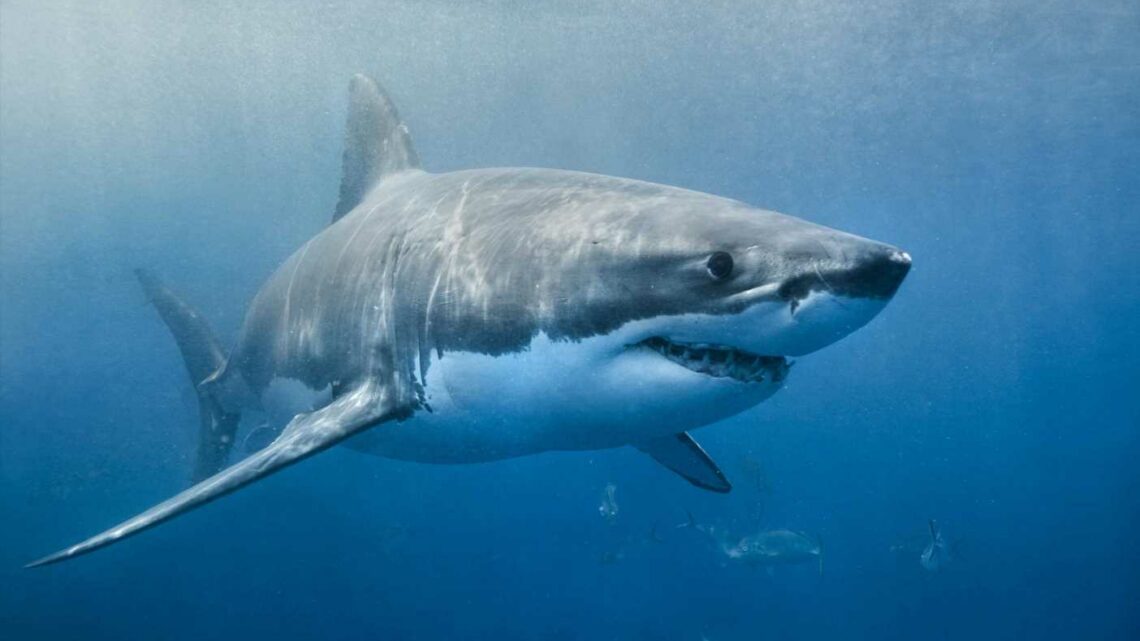
Which sharks are in UK waters and how common are shark attacks? – The Sun | The Sun
August 3, 2022THERE are more than 400 known species of shark in the world.
British waters are home to more than 40 different species – but how rare are shark attacks?
Which sharks are in UK waters?
More than 40 different species of shark pass through UK waters, but only 21 of these can be found all year round.
Cornwall and Devon are the shark hotspots in the UK.
Scientists categorise over 50 per cent of British shark populations as threatened or near threatened.
But sightings in the UK will become more common as sharks try to escape rising temperatures in the Mediterranean.
Porbeagle
The porbeagle is one of the most common types of shark to be spotted by British fisherman.
Its distinctive dorsal fin and long powerful body are among the characteristics that make the creature resemble a great white.
Thankfully, there has never been a confirmed case of a porbeagle killing a human, as the predators feed on smaller fish.
Basking Shark
The basking shark is another species that regularly causes alarm in British waters.
They are the second largest species of fish, after whale sharks.
Even though the creature can grow up to ten metres long, and has a worryingly large jaw, it's highly unlikely they will attack as they feast on plankton.
Blue Sharks
Blue sharks migrate from the Caribbean and come to Britain during the summer – often travelling over 5,000 miles in one trip!
They feed on small fish and squid, but have been known to attack seabirds and other small sharks.
How common are shark attacks worldwide and in the UK?
Every year, around 70 shark attacks are reported worldwide – and only a fraction of these are fatal.
Given that there are more than 480 different species of sharks, this is a relatively small number.
As of August 3, 2022, there have been 56 shark attack bites in 2022 publicly reported and verified, according to Tracing Sharks, six of which were fatal.
Only three sharks are considered to carry out unprovoked attacks on humans: the great white, tiger and bull.
Shark attack indices use different criteria to determine if an attack was "provoked" or "unprovoked."
When a human touches or aggravates a shark before the creature retaliates, it is known as a “provoked attack”.
"Unprovoked attacks" are initiated by the shark—they occur in a shark's natural habitat on a live human and without human provocation.
There are three different types of unprovoked attacks:
- Hit-and-run: This is the term used to describe the most common type of shark attack, which thankfully doesn’t tend to lead to fatal injuries. In this instance, the shark will bite its victim and leave, usually because the creature has mistaken the swimmer for its natural prey.
- Sneak: This attack is often fatal, but it is extraordinarily rare. In these cases, the creature will wound and bite an unsuspecting victim with the intention of consuming them.
- Bump-and-bite: This attack is typical to the great white, where the shark will circle its victim before biting and returning for more.
Experts have warned the number of attacks will rise due to environmental initiatives to protect seals – a key part of a shark's diet.
However, some people feel seals are now proving a real danger to humans as they are attracting record number of sharks closer to shore.
James Sulikowski, a researcher of Northeastern sharks based at Arizona State University, said: “They’re not looking for us. We’re not on the menu.
“But as these predator-prey relationships continue, and because they are so coastal, there’s potential for interaction with humans to increase.”
Have great white sharks ever been seen off the coast of Britain?
A "great white shark" is thought to have been spotted lurking off the coast of Britain in February 2022.
An experienced shark fisherman said the creature seen near the beach at Goring-by-Sea in West Sussex was "obviously a shark" and it could be a "small, immature great white" searching for food.
Scientists from Ocearch are planning the expedition for September 2022, hoping to prove that great white sharks frequent the UK coasts.
However, as these sharks prefer warm waters, it is highly unlikely that you’d find them in British waters.
Usually, the great white can be found in the Atlantic, Pacific and Indian Ocean, as well as the Mediterranean Sea.
In February 2022, Simon Nellist, 35, from Britain, was killed by a shark just 150m away from the beach at Buchan Point, near Little Bay in Sydney, in the first fatal attack in nearly 60 years.
He was mauled to death by a 15ft great white in an "incredibly rare" attack as he trained for a charity ocean swim.
Expert Lawrence Chlebeck said that the ferocious shark probably mistook the swimmer – reportedly wearing a wetsuit – for a seal when it launched and attacked the Brit.
Source: Read Full Article



